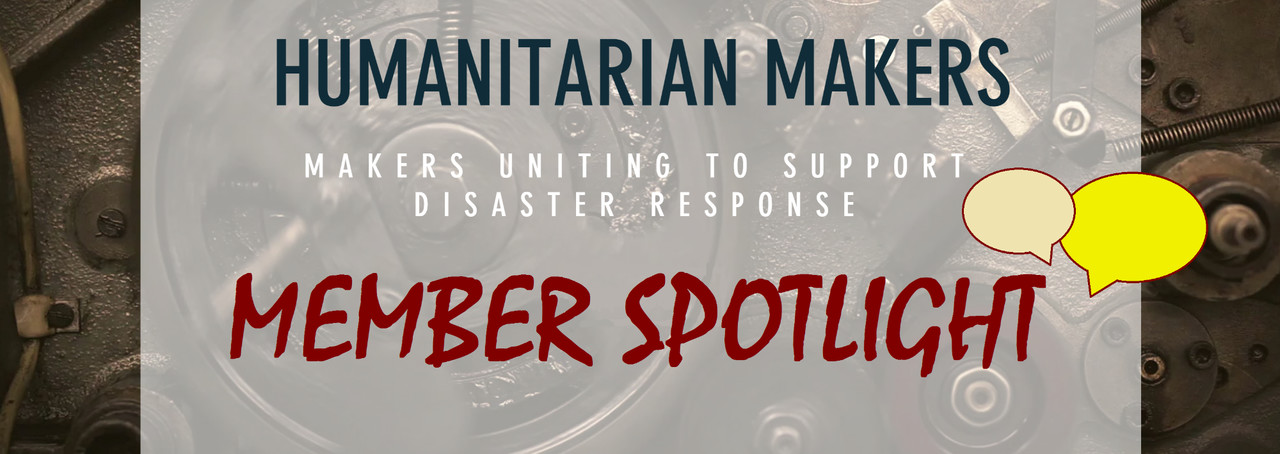
HM Chat with Natalie Relich, ED, OHorizons
Water. It’s a source of strength and life for all of us, no matter where we live. It is an essential part of our being. Our own bodies are 2/3rds water.
Mr. Handby at the Australian Red Cross stated, “For everyone, no matter where they live on this planet, water means life and wherever there is a lack of clean water and sanitation then disease, death and economic hardship take over. Chronic water and sanitation problems are one of the greatest issues facing the world today...”(Australian Red Cross, 2011).
Here are the stats:
We’ve made significant progress as a global community -> “In 2015, 91% of the world’s population had access to an improved drinking-water source, compared with 76% in 1990.” (WHO) The descriptor “improved” refers to a water source that, through technological intervention, increases the likelihood that it provides safe water (JMP Report, 2012).
Yet, “globally, at least 1.8 billion people [26% of the world population] use a drinking-water source contaminated with faeces.” (WHO)
And, “contaminated drinking-water is estimated to cause 502 000 diarrhoeal deaths each year.” (WHO)
These deaths are preventable with the knowledge and technology we have today.
The water crisis is the #1 global risk based on impact to society (as a measure of devastation), as announced by the World Economic Forum in January 2015.
Natalie Relich, the Executive Director of OHorizons, represents one team working to provide a solution. She kindly chatted with me a few weeks ago about her organization’s clean water product and distribution strategy. For those of you that aren’t familiar with the organization:
“OHorizons is a non-profit coalition of technical, social, and commercial innovators. We solve persistent global challenges that limit communities’ ability to survive and thrive. We do this by leveraging our global network of specialists to develop and deploy solutions that are characterized as Low-Tech, High-Thinking.”
OHorizons’ current focus is on increasing access to clean water through the provision of concrete BioSand Filters. The filter design is low-tech and more accessible for local production, due to its use of a Wood Mold as opposed to the traditional steel mold method of production.
Per OHorizons website, the advantages of a Wood Mold are:
· Inexpensive ($70-$100/mold including cost of labor)
· Locally-Sourced Materials (all materials purchased in-country and easily replaced)
· Easy to use (no special skills or previous construction experience required)
· Durable (+50 filters/mold)
· Can be made off-grid
· Rapidly increases filter production capacity
You can download the design and build it locally since its open-source.
This product also answered the challenge of distribution for OHorizons. Steel mold fabrication typically benefits from central production (due to the cost of the mold and need for technical, specialized skills and electricity). The BioSand filters, once made, are heavy (350 lbs or 160kgs). The OHorizons BioSand filter and mold can typically be made near communities, using locally sourced materials. A person doesn’t need a technical background in order to make it. The design files have been downloaded over 400 times in the last 18 months from users in over 70 different countries.
In their product introduction guide, I noted the following:
In the field, BioSand Filters have been shown to remove 88-98% of bacteria, 70-99% of viruses, more than 99% of protozoa, and up to 100% of helminthes. The Filters can also remove 80-95% of turbidity and 90-95% of iron. Studies have estimated the health impact of the filters, coming up with a 30-61% reduction in diarrhea among all age groups.
If this filter resonates with a need you’ve observed in your community, I encourage you to check out the guide to learn more as well as compare it to other solutions.
OHorizons also works with local partners. For example, in Bangladesh, they partnered with an organization that has been there for over 20 years. OHorizons goal is to scale with their partner. They aim to provide 1 million people in Bangladesh with clean water through the distribution of BioSand Filters within the next five years. With their partner, they will build a few production centers across Bangladesh which allows on-site assembly of the molds and filters. Natalie stated that, in Bangladesh, people see the benefits of the filter technique and notice a positive impact quickly. This helps spread demand and utilization within the communities.
Questions for the HM community:
Does your work involve addressing the clean water access challenge? Tell us about it!
Is this a solution you see as appropriate for your community? Share with us why and contact OHorizons.
What has been your experience with providing or accessing point-of-use clean water in homes? Tell us about it!
-Humanitarian Makers

